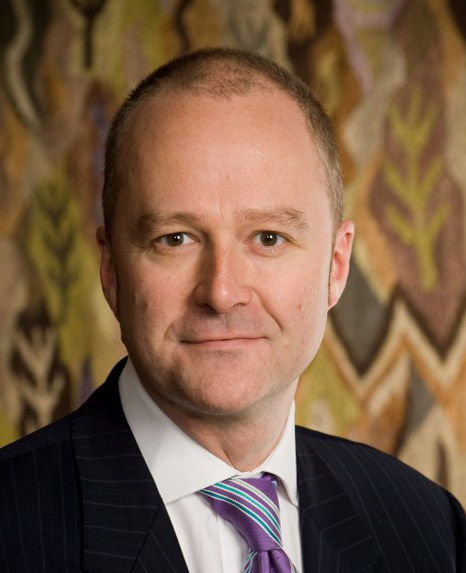Four of our new Associate Editors tell us a bit about their exciting areas of research, from palaeontology to artificial intelligence.

We are very pleased to welcome all of our new Associate Editors in 2021 to the Royal Society Open Science Editorial Board. Here, four new members tell us a bit about their exciting areas of research, across the scientific spectrum.
Jennifer Botha
I am currently a Senior Specialist Museum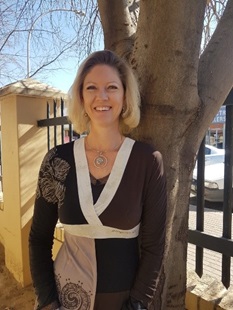 Scientist in the Karoo Palaeontology Department of the National Museum in Bloemfontein, South Africa. My research interests are in palaeobiology and palaeoecology, focusing on the life history responses of extinct vertebrates to environmental change. Using past mass extinctions as models, I use a variety of techniques, including biostratigraphy, morphology and osteohistology, to test theories regarding differential species survival during these extinction events. I have a special interest in osteohistology, the study of fossil bone microstructure, which provides novel information about the life history of the vertebrates associated with past mass extinctions. My previous research has focused on the terrestrial end-Permian mass extinction, the most catastrophic biotic crisis in Phanerozoic history. My current research has turned to the end-Triassic extinction, focusing on sites in the Karoo Basin of South Africa. Using biostratigraphy and osteohistology, I am investigating the palaeobiology of vertebrates (mostly early-branching sauropodomorph dinosaurs) before and after the extinction.
Scientist in the Karoo Palaeontology Department of the National Museum in Bloemfontein, South Africa. My research interests are in palaeobiology and palaeoecology, focusing on the life history responses of extinct vertebrates to environmental change. Using past mass extinctions as models, I use a variety of techniques, including biostratigraphy, morphology and osteohistology, to test theories regarding differential species survival during these extinction events. I have a special interest in osteohistology, the study of fossil bone microstructure, which provides novel information about the life history of the vertebrates associated with past mass extinctions. My previous research has focused on the terrestrial end-Permian mass extinction, the most catastrophic biotic crisis in Phanerozoic history. My current research has turned to the end-Triassic extinction, focusing on sites in the Karoo Basin of South Africa. Using biostratigraphy and osteohistology, I am investigating the palaeobiology of vertebrates (mostly early-branching sauropodomorph dinosaurs) before and after the extinction.
Mass extinction events have far-reaching effects on Earth’s ecosystems. Understanding their effects on biodiversity is critical for understanding how organisms adapt to changing environments and how these adaptations play a role in cladogenesis and trait diversification in the wake of the extinction event itself. This is particularly pertinent in today’s world, which is currently experiencing the 6th major mass extinction.
I am honoured to be joining the Royal Society Open Science Editorial Board and welcome the opportunity to be actively involved in managing and supporting excellent, globally relevant research. I am excited to be part of an efficient editorial team that promotes quick and useful peer reviews, making sure only the best research disseminates to the scientific community!
Feng Fu
With a training background in applied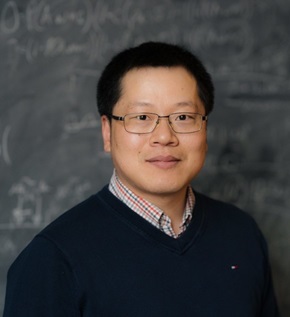 mathematics and complex systems, I am passionate about, and have been fully devoted to, the emerging field of mathematical humanities, that is, using mathematical and computational tools to change the world for the better by tackling a variety of pressing social, political, and public health issues, such as social diversity, misinformation, and vaccine hesitancy. This interdisciplinary field integrates with applied mathematics, social science, biomedical science, computer science, and statistical physics, and has a significant data component. Specifically, at Dartmouth I am leading an interdisciplinary team with diverse expertise to address open questions in the following synergistically interconnected research areas: (i) Evolutionary Game Theory: population structure and evolution of cooperation; (ii) Computational Social Science: human behavior and social networks; (iii) Biomedical Data Science: dynamics of cancer evolution and treatment; (iv) Public Health Data Science: behavioral epidemiology and network-based interventions; and (iv) Computational Neuroscience: E/I Imbalance hypothesis and neural Synchronization.
mathematics and complex systems, I am passionate about, and have been fully devoted to, the emerging field of mathematical humanities, that is, using mathematical and computational tools to change the world for the better by tackling a variety of pressing social, political, and public health issues, such as social diversity, misinformation, and vaccine hesitancy. This interdisciplinary field integrates with applied mathematics, social science, biomedical science, computer science, and statistical physics, and has a significant data component. Specifically, at Dartmouth I am leading an interdisciplinary team with diverse expertise to address open questions in the following synergistically interconnected research areas: (i) Evolutionary Game Theory: population structure and evolution of cooperation; (ii) Computational Social Science: human behavior and social networks; (iii) Biomedical Data Science: dynamics of cancer evolution and treatment; (iv) Public Health Data Science: behavioral epidemiology and network-based interventions; and (iv) Computational Neuroscience: E/I Imbalance hypothesis and neural Synchronization.
I believe in Open Science for its role in widely disseminating knowledge for bettering our common humanity around the globe. As an Associate Editor, I am thrilled to join a diverse community of editors and authors to promote and uphold a culture of inclusion, diversity, and equity in science and also to help contribute to the growing interdisciplinary research that has a foundation on mathematics.
Michelle Alexander
I am a biomolecular archaeologist at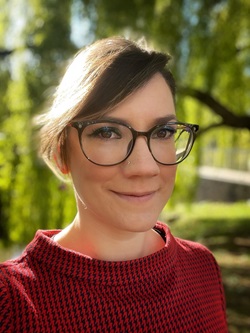 the University of York. I apply isotope analysis of bone and tooth preserved in the archaeological record to understand past human-animal-environment interactions. I am particularly interested in periods of transitions in society and culture and how these have affected our diet and economy. Although my research has a focus on the past, it has implications for understanding human societies and environments today. In fact, one of the things that drew me to my discipline was the ability to look to the past to understand some of the reasons for the current issues facing human societies. Several projects I am involved in at the moment explore historic human exploitation of marine ecosystems that have relevance for current fisheries conservation strategies. Another major line of my research looks to understand dietary diversity and inter-faith relationships in medieval multi-faith societies, analogous with issues experienced in the multi-cultural societies of the present day.
the University of York. I apply isotope analysis of bone and tooth preserved in the archaeological record to understand past human-animal-environment interactions. I am particularly interested in periods of transitions in society and culture and how these have affected our diet and economy. Although my research has a focus on the past, it has implications for understanding human societies and environments today. In fact, one of the things that drew me to my discipline was the ability to look to the past to understand some of the reasons for the current issues facing human societies. Several projects I am involved in at the moment explore historic human exploitation of marine ecosystems that have relevance for current fisheries conservation strategies. Another major line of my research looks to understand dietary diversity and inter-faith relationships in medieval multi-faith societies, analogous with issues experienced in the multi-cultural societies of the present day.
I am excited to become an Associate Editor with Royal Society Open Science and have a front row seat on some of the most exciting and impactful scientific research in my discipline. This is also a valuable chance to give back to the academic community working with such a well-respected journal.
Sebastian Stein
I am an associate professor in the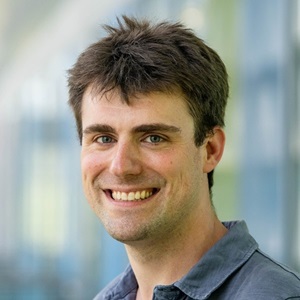 School of Electronics and Computer Science at the University of Southampton, and my research is in a subfield of artificial intelligence called multi-agent systems. This is concerned with modelling and designing systems consisting of many heterogeneous actors that each have different aims and objectives, but that have to coordinate their actions to share resources or solve complex problems together. Here, these actors often include a mixture of AI algorithms and human users that work in close partnership.
School of Electronics and Computer Science at the University of Southampton, and my research is in a subfield of artificial intelligence called multi-agent systems. This is concerned with modelling and designing systems consisting of many heterogeneous actors that each have different aims and objectives, but that have to coordinate their actions to share resources or solve complex problems together. Here, these actors often include a mixture of AI algorithms and human users that work in close partnership.
I am excited about this area, because many important real-world applications of AI technologies are multi-agent systems. This includes connected and autonomous vehicles, on-demand mobility, the Internet of Things and smart energy systems. Research in multi-agent systems can help us design algorithms and mechanisms that improve the efficiency of these systems despite the potential self-interest of participants. This may include distributing resources in a fair manner or offering incentives for socially beneficial behaviours (e.g., financial discounts for shifting energy demand during peak times).
One of my very first journal papers was published in the Philosophical Transactions of The Royal Society A, so I am particularly honoured to now serve as an associate editor for a Royal Society journal myself. Royal Society Open Science has a progressive policy of open data and objective, transparent peer-review, and this is something that I find especially appealing. I’m looking forward to receiving high-quality contributions and making a positive impact on this journal!
Image credits
Welcome photo by Ann H from Pexels; Jennifer Botha – self; Feng Fu - Dartmouth Staff Photographer Eli S. Burakian; Michelle Alexander – self; Sebastian Stein - Centre for Internet of Things / University of Southampton.




